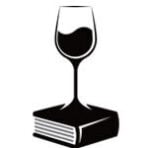California Polytechnic State University

California Polytechnic State University (Cal Poly), San Luis Obispo, has emerged as a powerhouse in wine education thanks to its foundational “Learn by Doing” philosophy and its strategic location in California’s Central Coast wine country. As the largest undergraduate wine and viticulture program in the United States, Cal Poly offers a dynamic blend of scientific rigor, real-world application, and close industry integration that prepares students to enter and lead in the modern wine business.
Background of the Program
Cal Poly’s journey into wine education began in the early 1990s with a wine marketing certificate course. It evolved rapidly from a minor in 1998 to a full-fledged department by 2013. Today, the Wine and Viticulture Department is housed within the College of Agriculture, Food and Environmental Sciences, underscoring the university’s land-grant mission and long-standing commitment to agriculture. Its regional influence is amplified by its position within the Paso Robles AVA, one of California’s premier wine-growing regions.
Curriculum & Format
The university offers a Bachelor of Science in Wine and Viticulture with three specialized concentrations: Enology, Viticulture, and Wine Business. Students take foundational and concentration-specific courses covering everything from grape pest management to branded wine marketing. The 180-unit degree requires both an internship and a senior capstone project, ensuring experiential learning is at the heart of the curriculum.
Learning takes place in-person and is anchored by exceptional facilities: a 14-acre teaching vineyard and the newly opened $22 million JUSTIN and J. LOHR Center for Wine and Viticulture. This center includes a bonded winery and research labs designed to replicate professional winery settings. Students also gain real-world experience through the Cal Poly Wines brand and an active wine club, integrating winemaking and business operations into their education.
Admission Requirements
Admission to the Wine and Viticulture program is highly competitive. First-year applicants are evaluated through a Multi-Criteria Admission process that weighs GPA, coursework, extracurriculars, and intended major. Transfer students must apply at the junior level and complete CSU and program-specific coursework. Graduate study is also possible through the CSU Statewide Program, requiring a related bachelor’s degree and ~3.0 GPA.
Notable Faculty and Alumni
The department boasts faculty with deep industry ties and academic expertise. Notable figures include Dr. L. Federico Casassa (Enology), Michael Costello (Viticulture), and Benoît Lecat (Department Head). Alumni can be found throughout California and internationally, with placements at wineries like Duckhorn, Silver Oak, E&J Gallo, and Justin Vineyards. Alumni such as David Beress and Justin Trabue reflect the program’s emphasis on diversity and leadership.
Reviews & Outcomes
Students praise the program’s practical focus and passionate faculty. With a median salary of $38,000 within one year of graduation, Cal Poly alumni are highly sought after. Industry leaders regularly cite Cal Poly graduates as being more prepared for real-world work thanks to the hands-on training. While some students report difficulty with course registration and campus-wide diversity, the wine program itself is widely respected for its quality and career readiness.
Pros & Cons
Pros:
- Industry-aligned curriculum integrating viticulture, enology, and wine business
- Premier facilities, including a bonded commercial winery
- Strong regional industry ties and internship pipeline
- Focus on sustainability and hands-on education
Cons:
- Limited graduate research opportunities compared to UC Davis
- Less racial and economic diversity in the student body
- Occasional challenges with course availability and campus infrastructure
Unique Features
Cal Poly’s integration of vineyard management, winemaking, and wine business into one program is unmatched. Its JUSTIN and J. LOHR Center is a state-of-the-art, donor-funded hub that serves as a living classroom. Sustainability is emphasized throughout, and students gain commercial experience through the Cal Poly Wines brand and wine club. Global learning is encouraged through international internships and study tours.
Program Focus Areas
The program focuses equally on:
- Viticulture: Site evaluation, sustainable farming, disease/pest management
- Enology: Chemical, microbiological, and sensory analysis, winery operations
- Wine Business: Marketing, finance, logistics, and legal compliance
These disciplines are seamlessly integrated into a holistic curriculum that prepares students for the complexities of the global wine industry.
Student Demographics & Size
With nearly 300 undergraduates, Cal Poly’s Wine and Viticulture program is the largest of its kind. Women make up 59% of graduates, and the program skews predominantly white. University-wide, Cal Poly has a 30% acceptance rate and a student body with a high median family income, suggesting a need for broader socioeconomic diversity within the program.
Commercial Winery Status
The Cal Poly Wines brand operates out of the campus’s bonded winery, offering Sauvignon Blanc, Chardonnay, Rosé, Pinot Noir, and Syrah. Students participate in all aspects of production and sales, from grape crush to marketing. The program also maintains a wine club, offering real-world exposure to direct-to-consumer channels.
Industry Partnerships
Cal Poly has deep ties with Central Coast wineries like Tablas Creek, Opolo, and Justin Vineyards. The program collaborates with Compli to train students in compliance and wine law. Industry partnerships support internships, scholarships, and applied research, ensuring students graduate with real-world experience and industry connections.
Accreditation & Affiliations
Cal Poly is accredited by the WASC Senior College and University Commission (WSCUC) through 2032. While the wine program itself does not hold specialized accreditation, it participates in the CSU Statewide Viticulture & Enology Program and maintains affiliations with ASEV and VESTA.
Regional Wine Identity
Rooted in the Paso Robles AVA and broader Central Coast, Cal Poly emphasizes cool-climate viticulture and varietals such as Syrah, Pinot Noir, and Bordeaux grapes. Its regional integration ensures students are well-versed in the unique challenges and opportunities of this dynamic winegrowing area.
Cal Poly’s Wine and Viticulture program offers a rare combination of scale, quality, and real-world immersion. From its industry-funded facilities to its tight industry partnerships and regional focus, it equips students to thrive in a rapidly evolving wine industry, whether in the vineyard, cellar, or boardroom.
